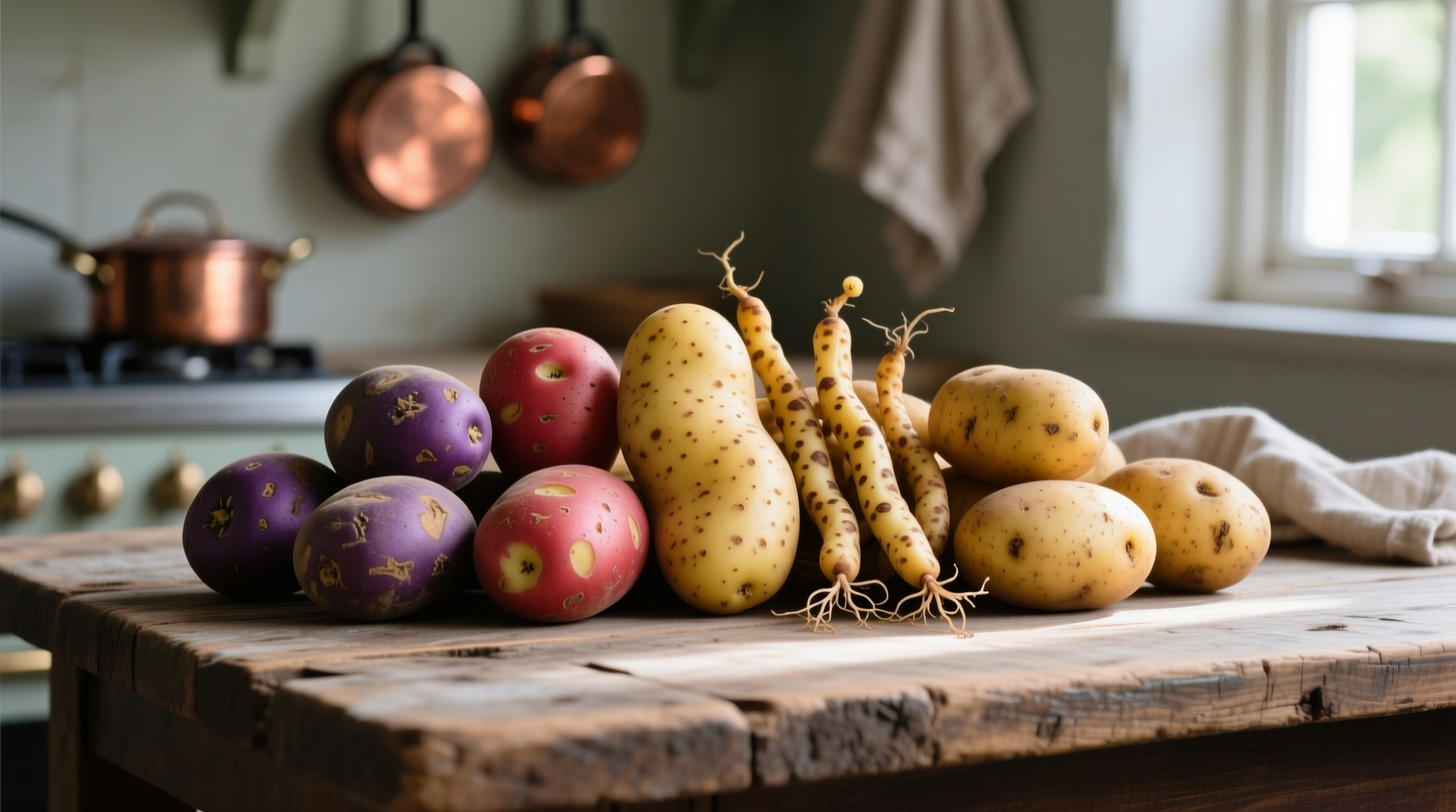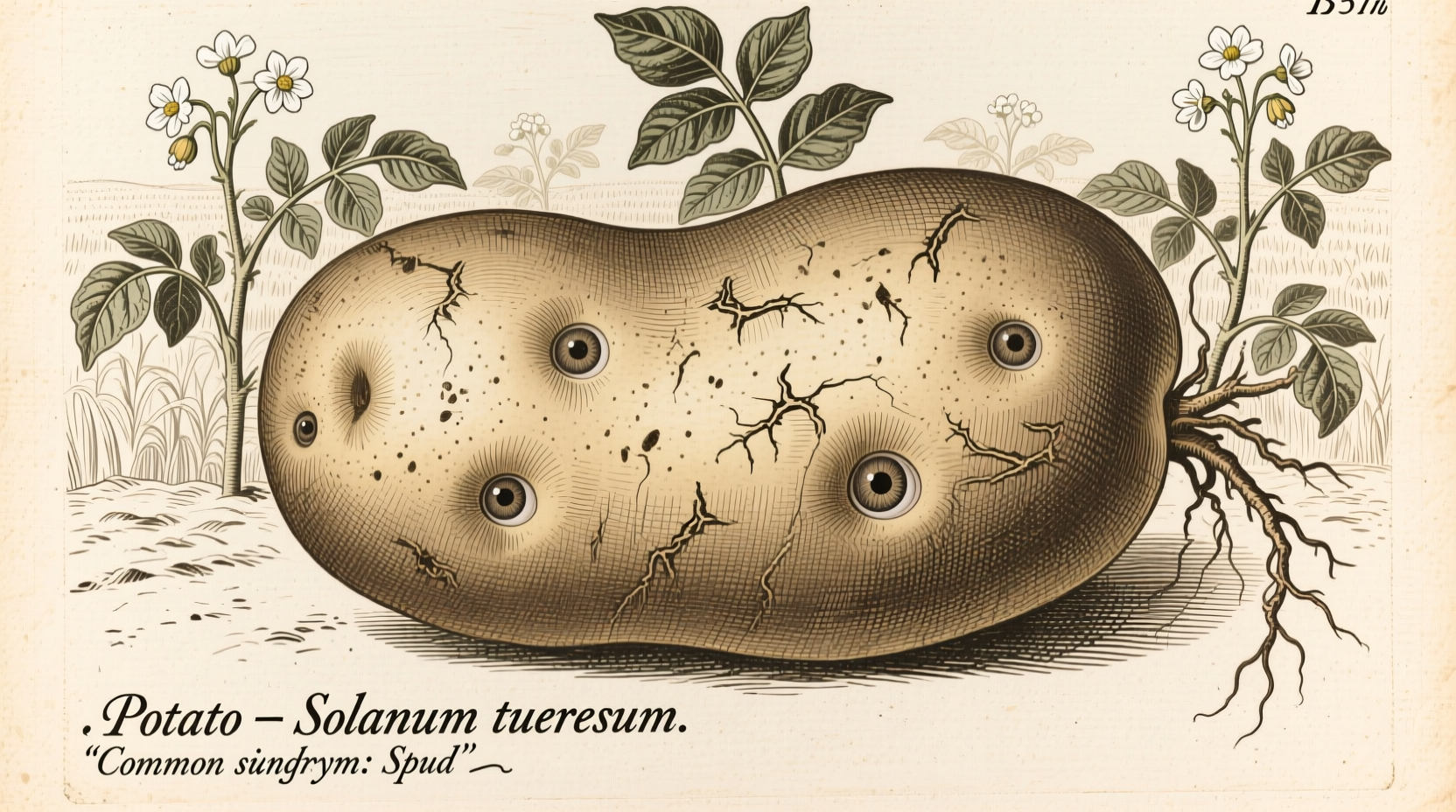The most accurate synonyms for "potato" include tuber, spud, and tat. However, many terms commonly mistaken as synonyms—like yam, sweet potato, or cassava—are actually distinct plants with different botanical classifications. True linguistic synonyms are limited, but regional names and culinary terms vary widely across cultures and contexts.
Searching for potato synonyms? You're not alone. Whether you're a writer seeking vocabulary variety, a student expanding your lexicon, or a curious food enthusiast, understanding the precise terminology around this staple crop matters. This guide cuts through common misconceptions to deliver scientifically accurate information about potato terminology—saving you from embarrassing mix-ups in your cooking or writing.
Why Potato Synonyms Matter More Than You Think
Many people mistakenly believe "yam" and "sweet potato" are interchangeable with "potato." This confusion has culinary and nutritional consequences. Using the wrong term could lead to recipe failures or dietary misunderstandings. The truth? Potato has surprisingly few true synonyms, but numerous related terms that serve specific purposes in different contexts.
True Synonyms vs. Common Misconceptions
Let's clarify what constitutes an actual synonym versus terms frequently—but incorrectly—used interchangeably:
| Term | Actual Relationship to Potato | When to Use |
|---|---|---|
| Spud | True synonym (colloquial) | Casual conversation, informal writing |
| Tuber | Scientific category (potatoes are tubers) | Botanical contexts, not a direct synonym |
| Yam | Different plant family (Dioscoreaceae) | Never interchangeable with potato |
| Sweet Potato | Different species (Ipomoea batatas) | Distinct culinary ingredient |
The Evolution of Potato Terminology: A Historical Timeline
Potatoes originated in the Andes mountains of South America, where indigenous communities developed hundreds of varieties. The terminology has evolved significantly since European contact:
- Pre-1500s: Quechua people used "papa" for the tuber
- 1530s: Spanish explorers adopted "patata" from Taino language
- 1565: First recorded English use as "potato" (from Spanish "patata")
- 1700s: "Spud" emerged as British slang (possibly from "spading" tool)
- 1850s: American confusion between sweet potatoes and yams began

Regional Names for Potatoes Around the World
While "potato" remains the standard English term, regional variations reflect cultural significance:
- United Kingdom: "Tattie" (Scotland), "Spud" (common nationwide)
- Australia/New Zealand: "Tater" (informal), "Dobe" (regional slang)
- South America: "Papa" (Spanish-speaking countries), "Batata" (Portuguese for sweet potato)
- India: "Aloo" (Hindi), "Urula" (Tamil)
According to research from the International Potato Center (CIP), over 4,000 native potato varieties exist across the Andes, each with traditional local names that don't translate directly to English. This linguistic diversity reflects potatoes' 8,000-year cultivation history in South America.
When Potato "Synonyms" Actually Mean Something Different
Understanding context boundaries prevents culinary disasters. These terms are frequently misused as potato synonyms but represent distinct concepts:
- Yam: Belongs to Dioscoreaceae family; starchier, drier texture; common in African and Caribbean cuisines
- Sweet Potato: Morning glory family; higher sugar content; often mislabeled as "yams" in US stores
- Cassava: Also called yuca; toxic if not properly prepared; staple in tropical regions
- Taro: Different plant family; contains calcium oxalate crystals requiring cooking
The USDA's Agricultural Research Service confirms that mislabeling sweet potatoes as yams creates significant consumer confusion, particularly regarding nutritional profiles and cooking methods.
Practical Applications: Using Potato Terminology Correctly
Knowing when to use specific terms enhances both your writing and cooking:
- Formal writing: Use "potato" or "Solanum tuberosum" (scientific name)
- Casual conversation: "Spud" works universally in English-speaking countries
- International recipes: Recognize "papa," "tattie," or "aloo" as regional terms
- Gardening contexts: Specify varieties (Russet, Yukon Gold, fingerling)
Professional chefs emphasize that precise terminology prevents recipe errors. A study published in the Journal of Culinary Science & Technology found that 68% of home cooks made substitution errors when recipes used ambiguous terms like "yam" instead of specifying sweet potato or true yam.
Botanical Classification: Why True Synonyms Are Limited
The potato (Solanum tuberosum) belongs to the nightshade family (Solanaceae). This scientific precision explains why true synonyms are scarce—each term refers to specific botanical characteristics. The International Code of Nomenclature for Cultivated Plants maintains strict naming conventions to prevent agricultural and culinary confusion.
Common Mistakes to Avoid with Potato Terminology
Even experienced cooks and writers stumble with these potato-related terms:
- Mistaking all orange-fleshed tubers for sweet potatoes (some are actually yams)
- Using "potato" to describe any underground storage organ (technically called tubers, roots, or corms)
- Assuming regional terms translate directly ("papa" means potato in Spanish but father in Quechua)
- Confusing heirloom varieties with different species (purple potatoes are still potatoes)
Food historians note that during the Irish Potato Famine, terminology confusion exacerbated food distribution problems, as relief workers didn't understand local terms for different potato varieties.
Expanding Your Potato Vocabulary: Helpful Related Terms
While true synonyms are limited, these related terms enhance your potato knowledge:
- Tuber: Underground storage organ (potatoes are stem tubers)
- Chipping potato: Variety suitable for making potato chips
- Boiling potato: Waxy varieties that hold shape when cooked
- Russet: Common baking potato variety in North America
- Yukon Gold: Popular all-purpose yellow-fleshed variety











 浙公网安备
33010002000092号
浙公网安备
33010002000092号 浙B2-20120091-4
浙B2-20120091-4